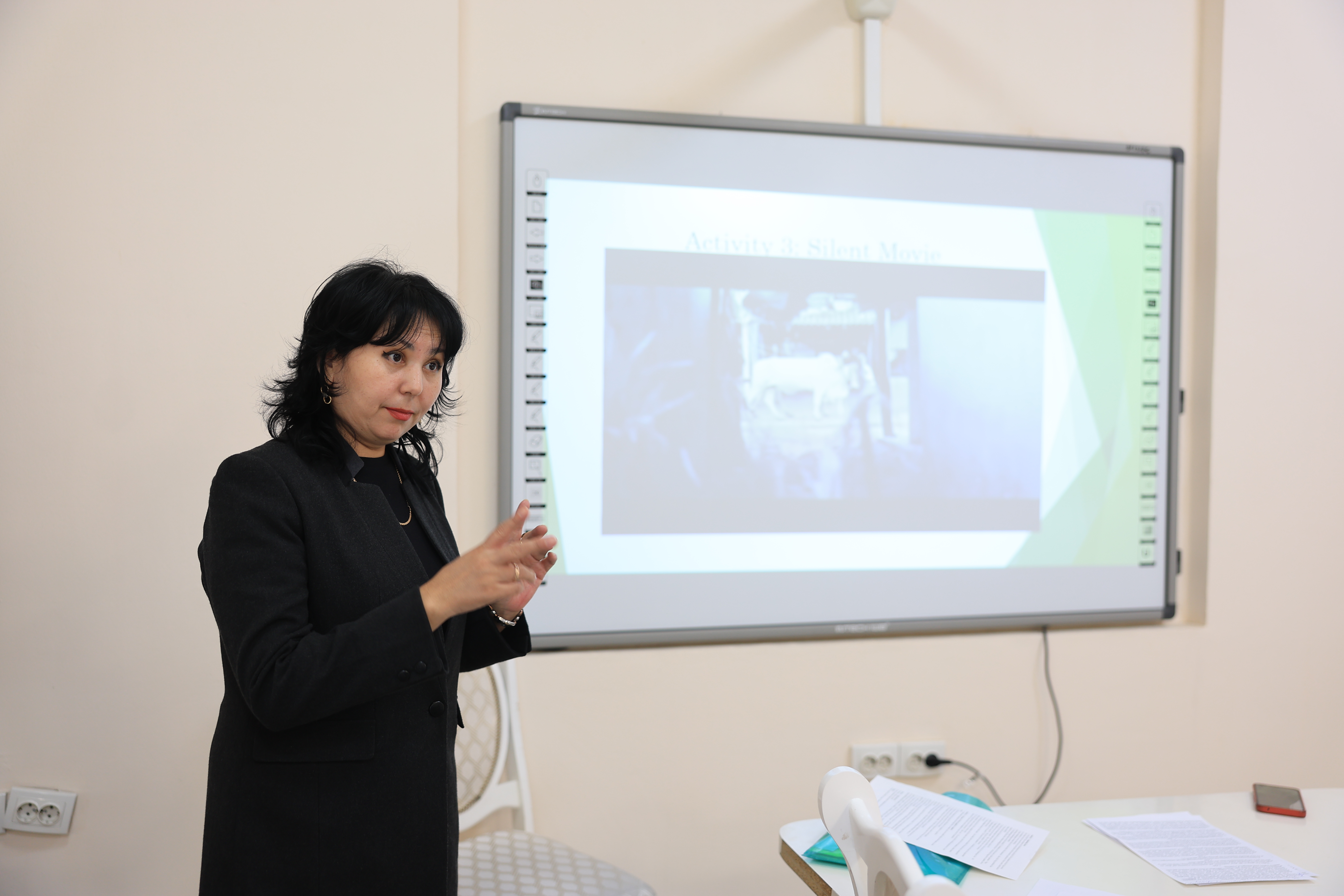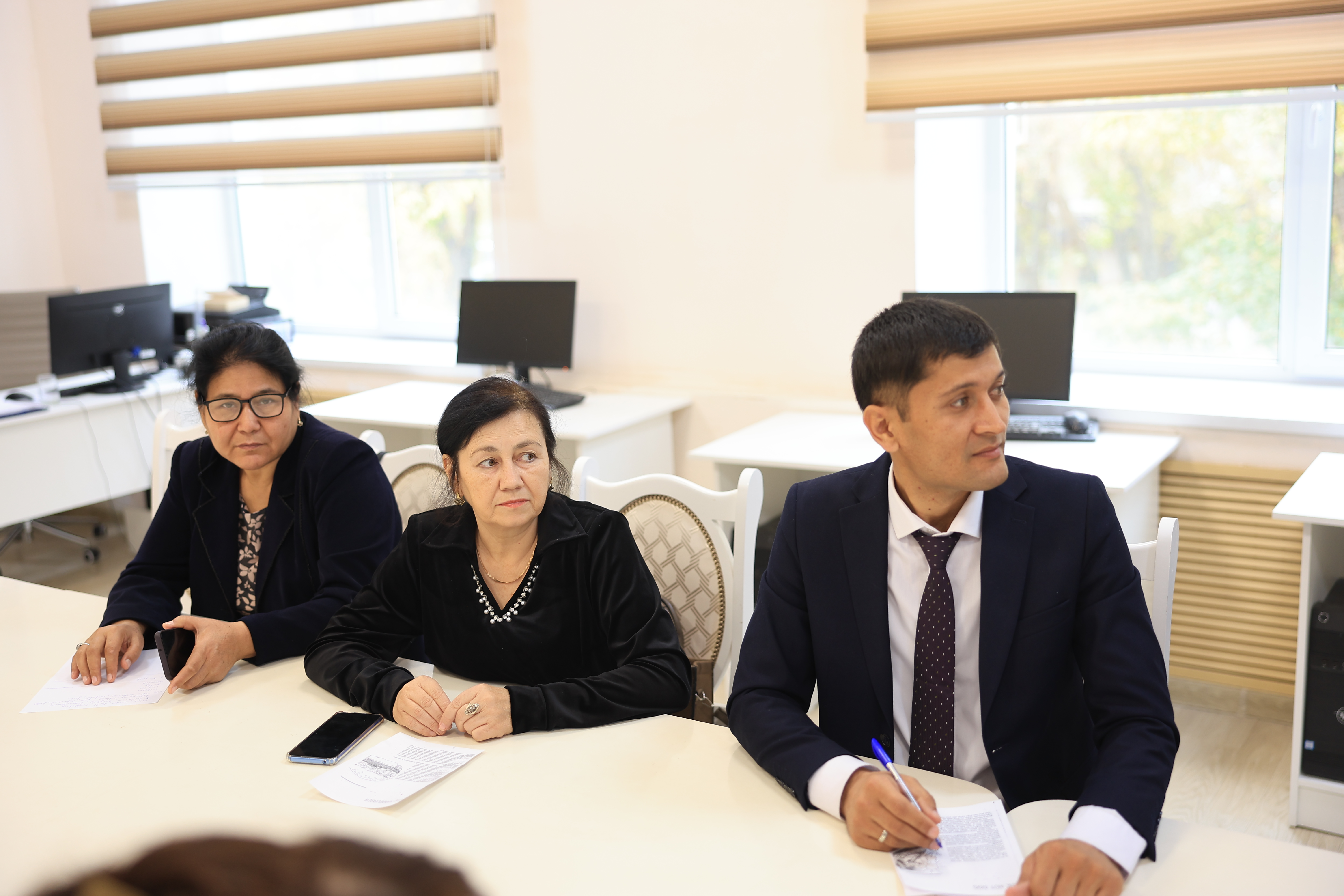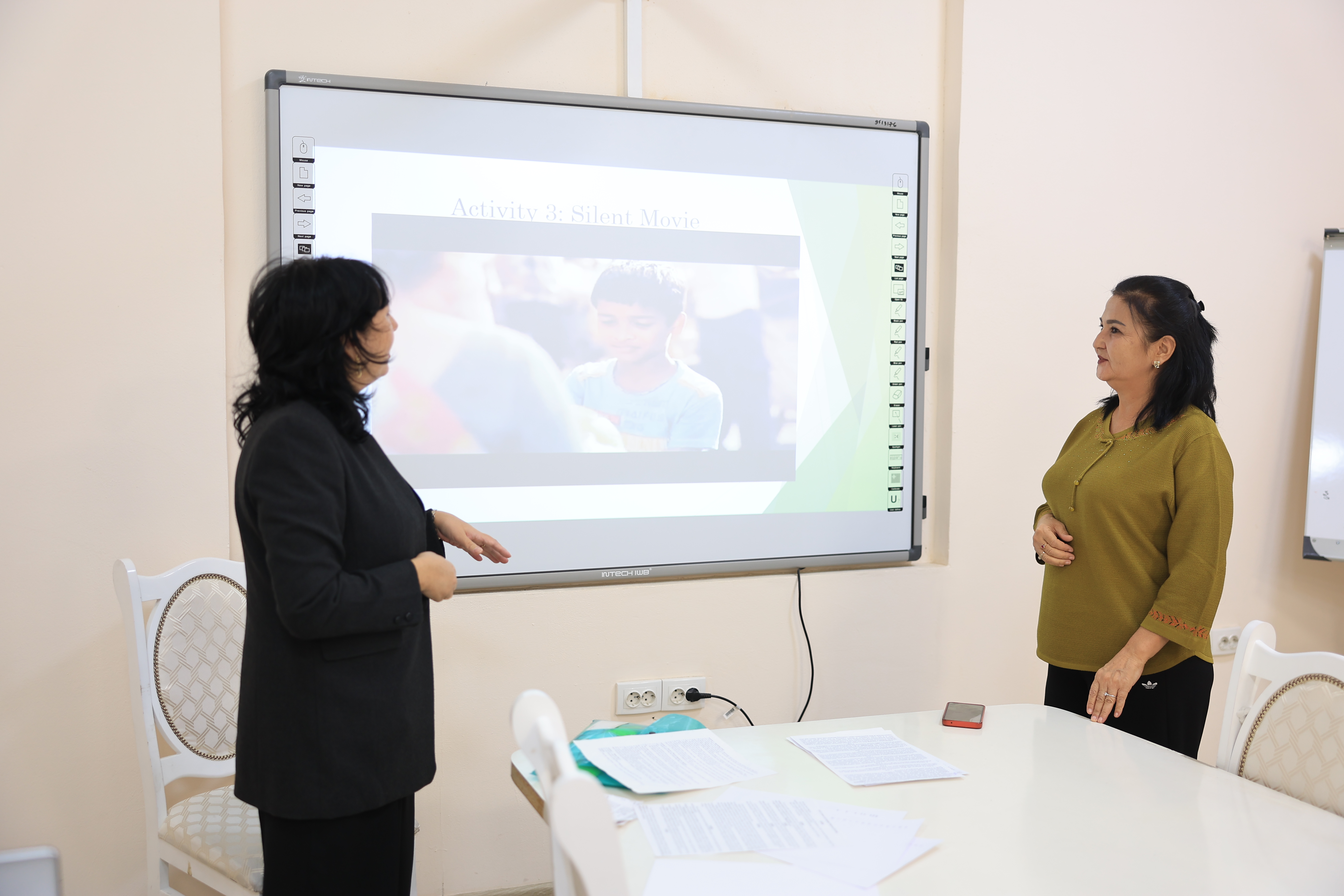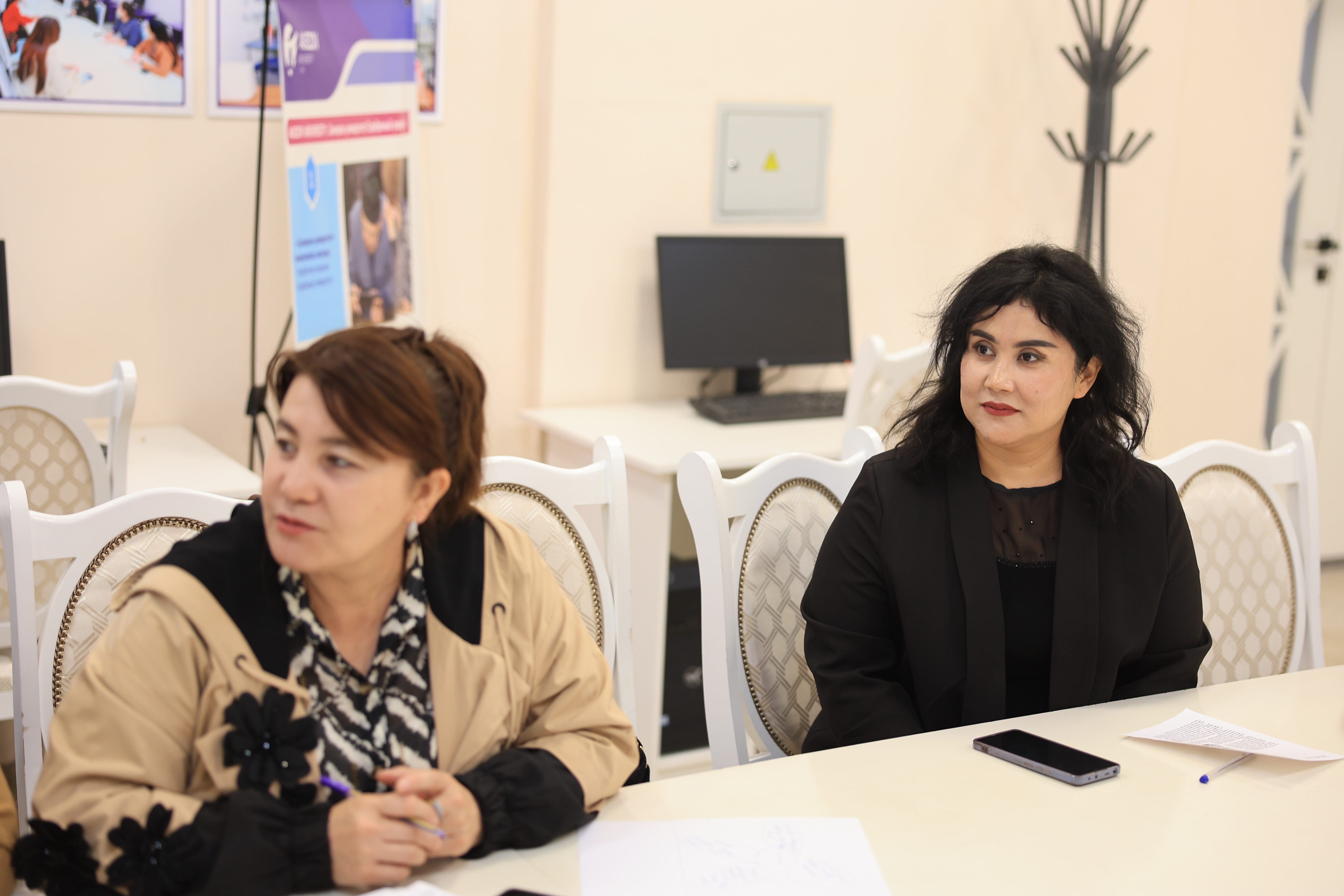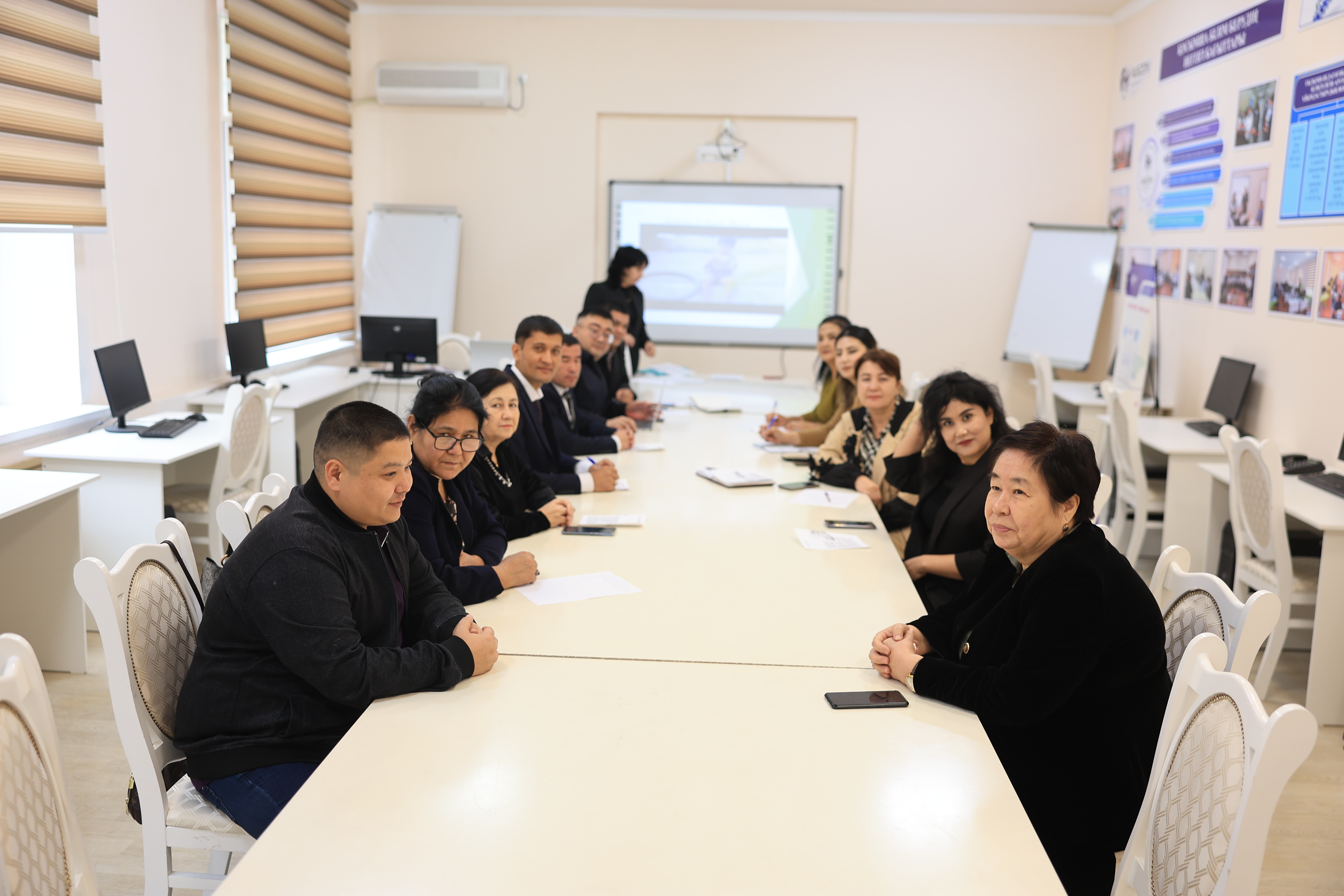News
Artificial Intelligence and New Educational Technologies
- Hits: 15
The modern education system is constantly evolving and renewing itself to keep pace with the times. A vivid example of this progress is the integration of AI technologies into the learning process. These modern tools enhance the quality of education, making learning more efficient and easing the workload of teachers and students alike.
New approaches to learning have emerged with the help of artificial intelligence, such as personalised content, differentiated instruction, and improved analysis and management of the educational process. Such technologies play an important role in preparing future professionals who are capable of competing in a global environment.
As part of the 'Modern Educational Technologies' course at the Centre for Continuing Education, Dr Aigul Nazimbekovna Zhorabekova, Head of the 'Foreign Language for Technical Specialties' Department, invited participants to share their thoughts and experiences on the topic 'AI and New Educational Technologies'.
According to the participants, AI gives a powerful boost to the development of the education system, making it more accessible and continuous. AI technologies eliminate time and space constraints, enabling students to study at their convenience. Furthermore, AI can adapt to each learner's abilities by building a personalised learning path and offering additional materials when needed.
AI-based systems automatically analyse completed assignments and test results to identify students’ strengths and weaknesses. This simplifies teachers' work and helps them to focus on creativity and improving their teaching methods.
In conclusion, artificial intelligence is a driving force for renewing educational content. It opens up new opportunities to enhance teaching practices, simplify the creation of multimedia and interactive materials, increase student engagement and improve learning outcomes.
New approaches to learning have emerged with the help of artificial intelligence, such as personalised content, differentiated instruction, and improved analysis and management of the educational process. Such technologies play an important role in preparing future professionals who are capable of competing in a global environment.
As part of the 'Modern Educational Technologies' course at the Centre for Continuing Education, Dr Aigul Nazimbekovna Zhorabekova, Head of the 'Foreign Language for Technical Specialties' Department, invited participants to share their thoughts and experiences on the topic 'AI and New Educational Technologies'.
According to the participants, AI gives a powerful boost to the development of the education system, making it more accessible and continuous. AI technologies eliminate time and space constraints, enabling students to study at their convenience. Furthermore, AI can adapt to each learner's abilities by building a personalised learning path and offering additional materials when needed.
AI-based systems automatically analyse completed assignments and test results to identify students’ strengths and weaknesses. This simplifies teachers' work and helps them to focus on creativity and improving their teaching methods.
In conclusion, artificial intelligence is a driving force for renewing educational content. It opens up new opportunities to enhance teaching practices, simplify the creation of multimedia and interactive materials, increase student engagement and improve learning outcomes.
Found a typo? Please select it and press Ctrl + Enter.





